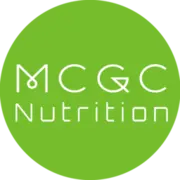Introduction
A few weeks ago, I was having a conversation about marketing with a business expert. To whom this may concern, if you recognize yourself, please know I am thanking you for my opening paragraph.
Here was my question: “How should I go about successfully implementing marketing in a such a competitive environment?”
Expert answer: “sexy sells!” She continued: “‘prevention of cardiovascular disease’ isn’t sexy.”
So why do I need attractive words when all I have is science?
She wasn’t advocating I lie or make false allegations. Not at all. Change is unappealing. To make it attractive, you need the ‘magic words’ that will convince readers that change is better than it looks.
When I started as a dietitian, my focus was very different. My first concern was preventive care and treatment through nutrition care management within a clinical setting. As dietitians, we know that a diet isn’t as simple as writing a prescription. In truth, it’s a lifestyle that implies changing key behaviours and accepting that these changes will be slow but will last for a lifetime.
Now, after a few years of introspection, I realize that it goes even deeper than that. It’s about the subconscious messages we received since childhood, it’s the impact of advertising, it’s confusion about foods that carry health halos, it’s health guru’s, celebrity endorsements and pseudo-experts. Its industries fueled by more resources (namely money) that permit their message to resonate louder, deterring from the accredited nutrition experts, the dietitians.
What is a regulated health professional?
To make issues even more confusing, the public is confronted with a list of professional-looking titles such as a registered holistic nutritionist, certified nutritional practitioner, RONP, RNCP, ROHP, RHN, CNP. (1) However, all of these ‘titles’ are not the same as registered dietitians (RD).
In Canada, the title of dietitian is protected like other medical professionals such as registered nurses and medical doctors. It is used to designate someone who received rigorous training from an accredited university, someone who adheres to a provincial regulatory body and has a valid practice license number. On the other hand, a nutritionist is a title that is not provincially regulated. As defined by Dietitians of Canada, it is ‘often used by those who have completed privately owned training programs that vary in length and rigor’ except for Alberta, Quebec and Nova Scotia where this title is protected by those provincial dietitian orders. (1)
The Ugly Truth About Dieting
It is estimated that 80% of people who diet will gain back the weight after 5 years. (2) So, why do people buy into weight loss only to start over again with some new fad, fueling the very market that is failing them? Why not bet on science?
Perhaps the answer lies in attractive marketing that sells ‘quick fixes’ rather than the slow but long-term approach of the dietitian. How appealing is this message? In 2018, the US weight loss industry hit a total value of 72 billion USD with a growth of 4.1% from the previous year and a forecasted growth of 2.3% until 2023.(3,7)
In a survey by the association of UK Dietitians found that 58% of people trust nutrition advice from under-qualified professionals. (4) Beyond this, those sources will put out unhealthy messages around body image, solicit problematic behaviours around food, and promote negative sentiments about self-worth. Even worse, these sources may advocate to the vulnerable, providing them with methods that are not science-based and that are potentially dangerous to their health and wellbeing. (5,6)
We need to change this.
As dietitians, we need to advocate a different view of nutrition that empowers the public. This must come from us so that we may protect the public against the negative health impacts of diets and weight loss methods (including supplementation).






